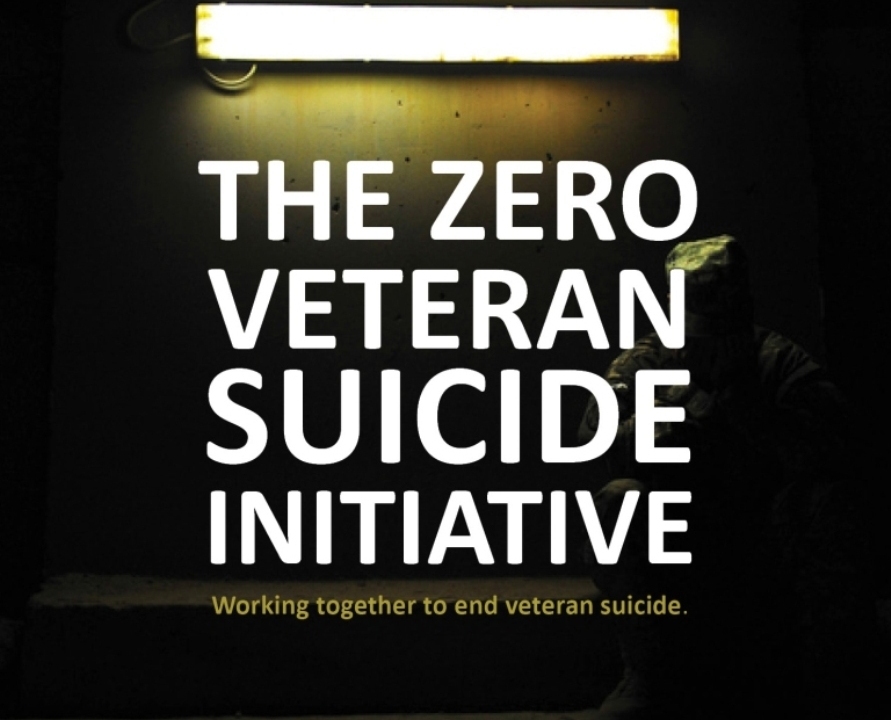
Author: fancherj
About fancherj
Posts by :


From War to Plow
From War To Plow: Why USDA Wants Veterans To Take Up Farming
March 3, 20151:08 PM ET
ABBY WENDLE

Three years ago, Air Force veteran Sara Creech quit her job as a nurse and bought a 43-acre farm in North Salem, Ind. She named her farm Blue Yonder Organic.
John Wendle for Harvest Public Media
Sara Creech has grown dependent on farming. She started out planting an orchard of fruit trees: apples, peaches, cherries and pears. She added berry bushes and rows of vegetables.
And then she bought her first chickens.
“A lot of people call chickens the gateway animal,” says Creech, who lives in rural North Salem, Ind. “Like once you have a chicken on the farm, then you end up getting sheep on the farm, and then you end up getting horses, and cows. And then it just explodes from there.”
Creech served as a surgery nurse during the Iraq War. She has a master’s degree and 16 years of experience. But she turned to farming when her career in nursing fell apart.
As many as one in five Iraq War veterans came home from service with PTSD. Creech was one of them. She said PTSD made returning to nursing impossible. Her depression and anxiety became so severe, she says she felt like she was dangerous to her patients.
“I couldn’t work,” she says. “I couldn’t do my job. It was devastating.”
Veterans returning home from Iraq and Afghanistan often have a hard time transitioning back to their civilian lives and careers. They have higher rates of divorce, depression and suicide. And they’re more likely to be unemployed than both civilians and veterans of other wars.
In recent years, thousands of veterans like Creech have showed an interest in farming as a way to find peace and purpose. Several nonprofit organizations and universitieshave launched programs to help them pursue careers in agriculture.
Now, Congress has gotten on board, giving veterans a dose of financial support. The 2014 Farm Bill designated veterans, for the first time, as a distinct class of beginning farmers within the U.S. Department of Agriculture. The status grants veterans access to low-interest-rate loans to buy animals and equipment. It also allows them to apply for grants to build onto their farm, and it can help them receive extra payments to implement conservation practices on their land.
“More than anything, it’s just an acknowledgement,” says Michael O’Gorman, founder of the Farmer Veteran Coalition, a nonprofit organization that links up veterans with farming jobs and apprenticeships.
O’Gorman started the coalition with a handful of interested veterans’ families in 2009. He says excitement about the legislation has helped double his group’s membership to 4,000 veterans in the past year.
Veterans still face all of the obstacles of other beginners: Farming is expensive. The hours are long. Success can be at the mercy of the weather, and profit margins can be discouragingly low. Operators of small farms often face financial problems that require off-farm jobs to keep the business afloat.
But the Farm Bill gives veterans an extra advantage over these obstacles. It not only provides them with access to all of the beginning farmer program’s resources, in some cases, it requires the USDA to give veterans’ applications priority preference — ahead of nonveterans and minority farmers.

Sara Creech used her savings account and support from her family to buy a foreclosed farmhouse in rural Indiana. This year, thanks to changes in the latest Farm Bill, Creech received $21,000 from the USDA — money she is putting back into her farm.
John Wendle for Harvest Public Media
O’Gorman says this preferential treatment is payment for the time veterans took away from their own goals to serve.
“The veterans don’t want a hand out,” he says. “But it would be nice to go to the front of a few lines, because even if one did come home unharmed — many of them didn’t — but they still took years out of the normal development of a career.”
While other recruiters might require a full resume, the USDA is eager to attract inexperienced farmers to the field.
The average American farmer is 58 years old, according to the 2012 Census of Agriculture. Farmers over 55 control more than half of the country’s farmland, and one in two is likely to retire in the next decade. Since 1987, there has been a decline in the number of new farmers joining the ranks, with only 17 percent at the beginning of their farming careers — with less than a decade of experience.
“When you look at the population growth, we’re naturally going to need more and more producers to keep pace with the growing demand,” says Karis Gutter, the USDA’s first military veterans’ agriculture liaison. “The veterans’ cadre looks very promising for us.”
About 2 1/2 million veterans have returned home from Iraq and Afghanistan, nearly half of them to rural counties. Despite that, very few veterans currently work in agriculture: just 2 percent of rural veterans of Iraq and the Gulf War, according to USDA.
But a USDA report from 2013 suggests that rural veterans could be a wise investment, because they tend to have more education and technical training than their nonveteran rural peers, and they bring unique skills from their military experience.
“It’s an absolute natural fit,” Gutter says. “Many of the men and women who have served come from rural backgrounds and get training to work with their hands and have a natural instinct for entrepreneurship.”
Sara Creech is proof of that sentiment. Three years ago she quit her job as a nurse and used her savings account and support from her family to buy a foreclosed farmhouse sitting on 43 acres in rural Indiana.
Last year, Creech started Blue Yonder Organic Farm, named for the Air Force theme song. She raised 900 chickens and sold meat, eggs and produce at the local farmers market and through a CSA.
This year, thanks to changes in the latest Farm Bill, Creech received $21,000 from the USDA because of her veteran status. She’s using the money to improve the quality of her soil and build a hoop house, which will extend her growing season and should increase her profits.
Creech is also getting support at the state level. Some Midwest states are launchingmarketing campaigns that supply veteran farmers with a patriotic logo, “Homegrown by Heroes,” to help advertise their products. Creech flies a “Homegrown by Heroes” sign at her farmers market table to attract customers.
“The community loves food, and they love veterans, at least in our area,” she says. “But they don’t know how to support us. They don’t know what we need.”
She says being able to designate her business as veteran-owned gives people a tangible way to pay her back for her service.
Money, though, is not her priority, she says. In many ways, she says, the work pays for itself.
“I am getting out of bed every day. And I am doing my chores every day. And I am taking care of animals every day. People are relying on me,” she says. “I don’t know where my life is going to take me, but I feel like I’m on the right path.”
She’s helping other vets find their path, too, hosting veterans groups at Blue Yonder for week-long workshops to give them a taste of life on the farm.
Abby Wendle is a reporter with Tri States Public Radio and Harvest Public Media, a public radio reporting collaboration that focuses on agriculture and food production.

Twenty Suicides a Day
Why do so many veterans kill themselves? Here are four theories.
Thomas E. Ricks is the author of five books about the U.S. military. He writes “The Long March” column for Task & Purpose, a veteran-oriented website.
Why do so many soldiers continue to take their own lives at a higher rate than their civilian counterparts, whether young or old? I’ve spent a lot of time stewing about this over the past few days.
It began Monday morning, when I got a note from a vet in a very dark place and contemplating the act. He’d served in Vietnam. His risk of suicide is about 22 percent higher than that of his non veteran peers, according to a report last year from the Department of Veterans Affairs.
That afternoon, I learned that an Army captain who had been featured a while back in my old “Best Defense” column on the Foreign Policy website had gone out in the middle of the night and sat on railroad tracks near Fort Carson, Colo., and a train ran over him; police are investigating the death. He was still in the military but may have been thinking of leaving. People getting out are at the highest risk in the year after they leave — about 1½ to two times as likely to kill themselves as those still on active duty.
A friend of his wrote to me, “He was always a high-performing and intelligent guy. He had deployed to Afghanistan with 10th Mountain, then to Kuwait with 4th ID prior to Atlantic Resolve where it looks like you met him. He was on deck to teach Military Science at West Point. He had a wife and daughter. Nothing about his death makes sense. The only indicator I had that he was unhappy was his deep frustrations with the conventional military, the high op tempo for support roles and exercises, and the impact on his family.”
Last month, the commander of the Marine 4th Reconnaissance Battalion was found dead in his home. He also had deployed several times to Iraq and Afghanistan.
Also recently, I read that a retired major who had served in military intelligence in Iraq had killed himself and his wife.
The suicide rate for veterans has gone up 35 percent since 2001, in part because of increases in post-9/11 veterans killing themselves.
I know what I am seeing around me is anecdotal. But it just doesn’t feel right to me. What is going on here?
Here are four possibilities, specific to the conditions of our recent war:
A lost war: My initial thought was that perhaps people are feeling empty and lost as the Middle Eastern war winds down and we don’t have a lot to show for it, besides Iran being more powerful than ever. But a friend who did several tours in Vietnam said he also knew that feeling but didn’t see any rash of suicides in the ’70s among his former comrades.
Death by rotation: Another theory is that everyone is born with just so much to give and that repeated deployments drain that reserve, without replenishment. At some point, a person might just decide they can’t do this anymore, that this is too painful and look for the fastest exit.
Brain injury: A third theory, related to the extensive use of roadside bombs in the Middle East, suggests that the human brain can, at best, withstand only one or two nearby explosions and cannot heal the deep damage inflicted by repeated blasts.
More to come: Or is it that depressed vets are responding to the whiff of another possible war on the horizon, with North Korea?
Whether it is one of these, or a combination, or something else, it worries me deeply.
Read more:
Patrick Mondaca: Veterans have a problem that no amount of parades or VA funding can solve
Letters to the Editor: Skip the parade, and use the money to help American vets
Nathan Fletcher: Veterans with mental-health injuries deserve Purple Hearts, too
Kimberly C. Field: Veterans, be thankful for your service
Brian Van Reet: Troubled veterans may suffer from something other than PTSD
